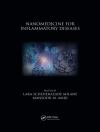
In December 2019, new cases of severe pneumonia were first detected in Wuhan, China, and the cause was determined to be a novel beta coronavirus related to the severe acute respiratory syndrome (SARS) coronavirus that emerged from a bat reservoir in 2002. Within six months, this new virus SARS coronavirus 2 (SARS-Co V-2)has spread worldwide, infecting at least 10 million people with an estimated 500, 000 deaths. COVID-19, the disease caused by SARS-Co V-2, was declared a public health emergency of international concern on January 30, 2020 by the World Health Organization (WHO) and a pandemic on March 11, 2020. To date, there is no approved effective treatment or vaccine for COVID-19, and it continues to spread in many countries.Genomic Epidemiology Data Infrastructure Needs for SARS-Co V-2: Modernizing Pandemic Response Strategies lays out a framework to define and describe the data needs for a system to track and correlate viral genome sequences with clinical and epidemiological data. Such a system would help ensure the integration of data on viral evolution with detection, diagnostic, and countermeasure efforts. This report also explores data collection mechanisms to ensure a representative global sample set of all relevant extant sequences and considers challenges and opportunities for coordination across existing domestic, global, and regional data sources.











